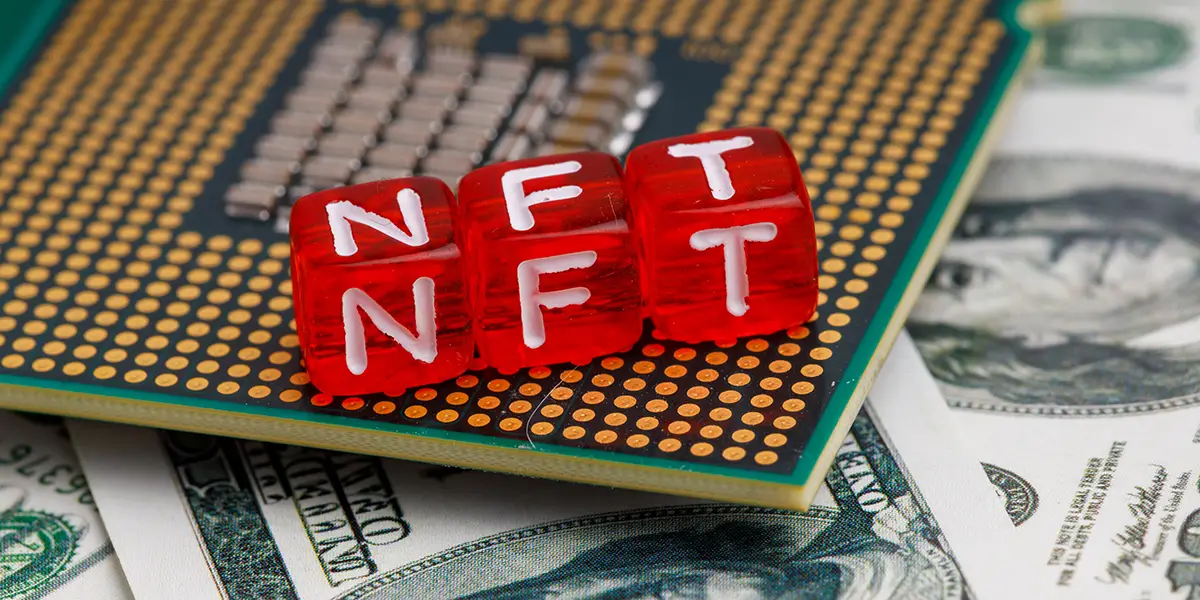Real-World Asset Craze Sends Polygon NFT Sales to the Top
22.04.2025 19:00 2 min. read Alexander Stefanov
Polygon has climbed to the forefront of the NFT market, taking the lead in weekly sales volume and surpassing Ethereum for the first time in months.
According to recent data, on April 22, Polygon-based NFTs generated $22.3 million in volume over seven days—enough to secure 24% of the entire NFT market’s sales during that period, which totaled nearly $93 million.
Fueling this unexpected jump was a sharp increase in user activity, with more than 39,000 unique buyers on the network—an 81% surge from the previous week. While Ethereum came in second with $19.2 million in sales, Mythos Chain and Bitcoin-based collections followed closely with $14.3 million and $14.1 million respectively.
The sudden momentum for Polygon was largely thanks to one standout collection: Courtyard NFTs. Specializing in tokenized physical collectibles, Courtyard brought in over $20 million in sales alone, dominating the charts and signaling growing interest in real-world asset (RWA) NFTs.
This collection focuses on highly sought-after graded cards—like Pokémon and sports trading cards—which are tokenized and stored securely in vaults. Buyers have the option to redeem the physical card, which removes the NFT from circulation. This model bridges the gap between tangible collectibles and blockchain ownership.
The broader trend of tokenizing real-world items continues to gain traction. According to RWA.xyz, the value of tokenized real-world assets has reached $21.2 billion in 2025 so far, with over 97,000 holders involved. This figure doesn’t even count stablecoins, which are valued at over $227 billion on-chain.
-
1
Anthony Pompliano Unveils Bitcoin Treasury Giant After Landmark Merger
23.06.2025 17:30 1 min. read -
2
BlackRock’s BUIDL Fund Becomes Margin Collateral on Deribit and Crypto.com
19.06.2025 19:00 1 min. read -
3
Nvidia Surges as Barclays Sees $200 Target on Blackwell Momentum
18.06.2025 11:00 1 min. read -
4
Gold Glides Toward New Peaks as Middle-East Strife Lifts Safe-Haven Demand
15.06.2025 10:00 2 min. read -
5
a16z Backs EigenCloud Launch With Fresh $70M Token Buy
18.06.2025 14:00 1 min. read
Donald Trump Signs “One Big Beautiful Bill”: How It Can Reshape the Crypto Market
U.S. President Donald Trump has officially signed his sweeping policy bill into law, enacting one of the most consequential pieces of legislation of his presidency.
FTX Halts Recovery Payments in 49 Countries: Here Is the List
The long-awaited creditor repayments from bankrupt crypto exchange FTX have hit a major roadblock, with the FTX Recovery Trust announcing a temporary suspension of payments to users in 49 foreign jurisdictions.
Trump’s ‘Big, Beautiful Bill’ Approved: What It Means for Crypto Markets
Congress has officially passed President Donald Trump’s landmark economic package, a sweeping bill that combines aggressive tax cuts with deep federal spending reductions.
BlackRock’s Bitcoin ETF Now Out-Earning Its $624B S&P 500 Fund
BlackRock’s spot Bitcoin exchange-traded fund (ETF), known by its ticker IBIT, has surpassed the firm’s flagship S&P 500 ETF in annual revenue, according to a new report from Bloomberg.
-
1
Anthony Pompliano Unveils Bitcoin Treasury Giant After Landmark Merger
23.06.2025 17:30 1 min. read -
2
BlackRock’s BUIDL Fund Becomes Margin Collateral on Deribit and Crypto.com
19.06.2025 19:00 1 min. read -
3
Nvidia Surges as Barclays Sees $200 Target on Blackwell Momentum
18.06.2025 11:00 1 min. read -
4
Gold Glides Toward New Peaks as Middle-East Strife Lifts Safe-Haven Demand
15.06.2025 10:00 2 min. read -
5
a16z Backs EigenCloud Launch With Fresh $70M Token Buy
18.06.2025 14:00 1 min. read


